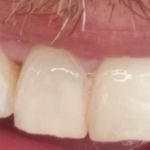Common Oral Hygiene Mistakes to Avoid: Tips for Better Dental Care
- 1. Improper Brushing Techniques
- 2. Not Using Floss or Interdental Cleaners
- 3. Ignoring Diet and Hydration
- 4. Not Visiting the Dentist Regularly
1. Improper Brushing Techniques
One of the most common mistakes in oral hygiene is improper brushing. Many individuals use incorrect techniques or apply excessive pressure while brushing, which can lead to enamel erosion or gum damage. The American Dental Association (ADA) recommends brushing with gentle, circular motions to effectively remove plaque without damaging sensitive areas of the gums or teeth. It is essential to use a soft-bristled toothbrush to avoid the risk of abrasions caused by hard bristles.
Another common mistake is failing to brush for the recommended two minutes. Many people rush through brushing and spend less time on each quadrant of their mouth, leading to areas being missed and plaque buildup. Setting a timer or using an electric toothbrush with a built-in timer can help ensure that you brush for the appropriate amount of time.
2. Not Using Floss or Interdental Cleaners
Even with regular brushing, areas between the teeth often remain untouched, where plaque and food particles accumulate. Using dental floss or interdental cleaners is essential to remove debris from these tight spaces. Skipping this step can lead to gum disease and cavities in these neglected areas. According to dental professionals, flossing once a day is typically sufficient to keep your gums and teeth healthy. If flossing is difficult or uncomfortable, alternatives like interdental brushes or soft picks may be a better fit.
Many people neglect flossing due to misconceptions that brushing alone is sufficient. However, research has shown that regular flossing significantly reduces the risk of periodontal diseases and cavities. The key is consistency, as daily flossing complements brushing to provide a more thorough cleaning of your mouth.
3. Ignoring Diet and Hydration
What you eat and drink plays a significant role in maintaining oral health. Sugary snacks, carbonated beverages, and acidic foods can contribute to tooth decay, while proper hydration helps maintain saliva production, which is essential for neutralizing acids and washing away food particles. Many individuals overlook the impact of their diet and hydration habits on their dental health.
A balanced diet rich in fruits, vegetables, and calcium-rich foods can help strengthen teeth and gums. Drinking water throughout the day aids in rinsing the mouth and preventing the buildup of harmful bacteria. Additionally, reducing acidic or sugary snacks between meals minimizes the chances of enamel erosion and decay.
4. Not Visiting the Dentist Regularly
Regular dental checkups are an essential part of maintaining good oral hygiene. Many people fail to schedule routine visits to the dentist due to busy schedules or a lack of symptoms. However, dental professionals can detect early signs of dental issues such as cavities, gum disease, or oral cancer before they become severe. Regular professional cleanings help remove plaque and tartar buildup that brushing and flossing may miss.
In addition to cleanings, dentists perform comprehensive exams to assess overall oral health. Even if you don't experience pain or discomfort, it is important to visit your dentist at least twice a year to ensure that your mouth remains healthy and any potential problems are addressed early.
By avoiding these common oral hygiene mistakes, you can significantly improve your dental health and prevent costly treatments in the future. For more information on proper dental care or to schedule a consultation, visit Dentistry Toothtruth.







 Maui Whitening Orlando4.0 (32 review)
Maui Whitening Orlando4.0 (32 review) Bloomington Southside Dental Care3.0 (26 review)
Bloomington Southside Dental Care3.0 (26 review) Christiana Dental Center4.0 (650 review)
Christiana Dental Center4.0 (650 review) Carolina Dental Arts - New Bern Ave4.0 (152 review)
Carolina Dental Arts - New Bern Ave4.0 (152 review) Equitas Health Short North Medical Center3.0 (96 review)
Equitas Health Short North Medical Center3.0 (96 review) Prosthodontics of Madison - Kendra Schaefer, DMD & Christine Roenitz, DMD4.0 (25 review)
Prosthodontics of Madison - Kendra Schaefer, DMD & Christine Roenitz, DMD4.0 (25 review) The Importance of Oral Health Education During Pregnancy for a Healthy Pregnancy
The Importance of Oral Health Education During Pregnancy for a Healthy Pregnancy Best Tips for Brushing Your Teeth Properly for Healthy Gums: Essential Techniques for Oral Health
Best Tips for Brushing Your Teeth Properly for Healthy Gums: Essential Techniques for Oral Health Why Skipping Dental Checkups Can Lead to Bigger Oral Health Problems
Why Skipping Dental Checkups Can Lead to Bigger Oral Health Problems Advantages of Porcelain Dental Restorations
Advantages of Porcelain Dental Restorations How Can Diabetes Cause Tooth and Gum Problems? Preventing and Managing Oral Health Issues
How Can Diabetes Cause Tooth and Gum Problems? Preventing and Managing Oral Health Issues Healthy Habits for Promoting Good Oral Health and Hygiene: Tips for a Healthy Smile
Healthy Habits for Promoting Good Oral Health and Hygiene: Tips for a Healthy Smile